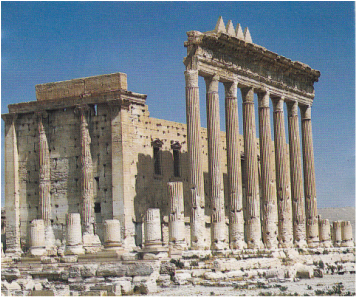
People don’t live forever, but their streets and buildings lasted thousands of years. Now, it’s one more victim of the barbarians looting antiquities throughout the Middle East to pay for their wars and smashing pre-Islamic artifacts as symbols of idolatry, even destroying treasures such as Palmyra’s Temples of Bel and Baalshamin. They showed their scorn for world opinion when they publically beheaded 81 year-old Khaled al-Asaad, the archeologist who oversaw the vast Palmyra site for 40 years. They continue to attract young recruits who admire brutal strength and have no sense of cultural history, mostly young men who can find no other way in their impoverished homelands to use their energy and ambition.
So many places that we’ve visited and admired over the years have become war zones. We loved our time in Egypt, even though we missed the massacre of tourists at Hatshepsut’s temple by only one day. Egypt’s economy has been destroyed because tourists are afraid to visit, so the country has become a breeding ground for poor, angry youths who see no hope except in religious fanaticism and violence. Even Turkey, one of our favorite countries, is torn between its traditional open society and the angry, closed society the fanatics want to create. Why are fanatics so afraid of diversity—of people and of ideas?
We visited Lebanon after it had recovered from a terrible conflict, but was beginning to face a flood of refugees from other countries. Now, they’re overwhelmed with growing numbers of desperate men, women, and children. Jordan, home of some of the world’s greatest archeological treasures, is struggling to cope with endless streams of refugees. Will Jerash and Petra someday face the plight of Palmyra, Aleppo, and the other great sites of Syria? Are the wonders of Egypt and the Nile valley at risk?
A while back, I published in an online magazine a story mostly set in Palmyra. Many of the places described in the story have been destroyed, but I’ll never forget that once elegant city, the heart of an empire ruled by a queen who defied the emperor of Rome. The link for the story, “Whither Zenobia?” is below.
Some of our most memorable moments while wandering the world were the times when we discovered the glories of past cultures, large and small, the places and things that reminded us of the astonishing varieties of human belief and creativity. What can we do to help preserve the cultural heritage that belongs to all humanity? At least, we must remember this vast, rich history and pass it on to later generations. Thugs can destroy, but we can make sure that the messages of history aren’t lost forever.
 RSS Feed
RSS Feed